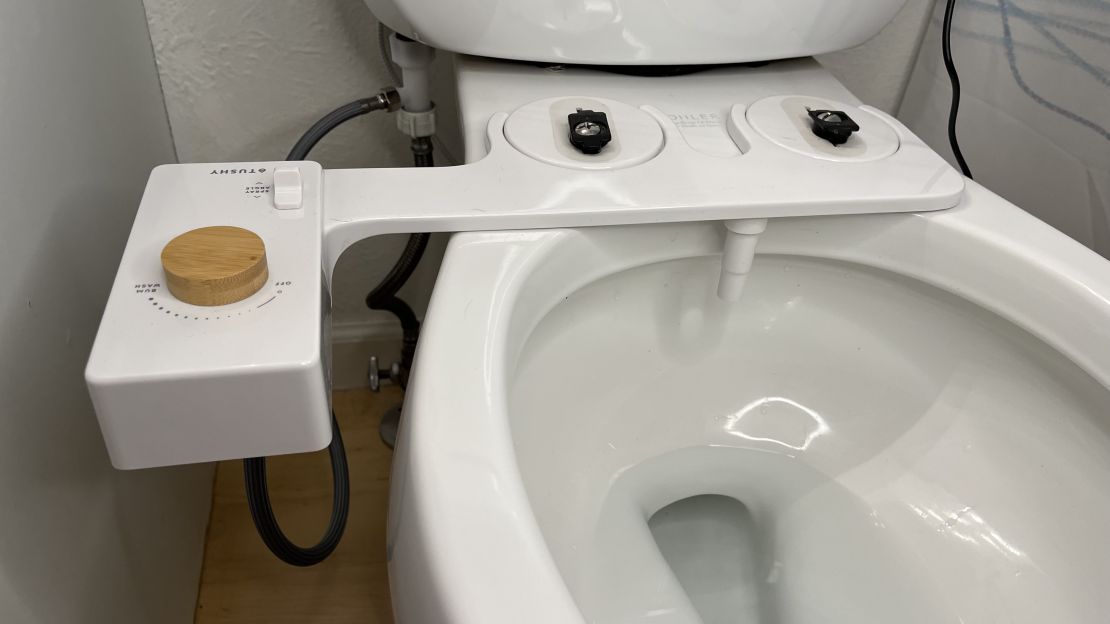The age-old debate of whether a bidet can truly replace the use of wipes in maintaining personal hygiene is becoming increasingly relevant in today's environmentally conscious world. The question, does bidet replace wipes, is not just a matter of personal preference but also ties into broader discussions about sustainability, efficiency, and modern bathroom practices. As the industry QA sector continues to evolve, understanding the implications of incorporating bidets as a replacement for wipes is crucial.
In this article, we delve into the advantages and considerations of using bidets over wipes, examining the environmental impact, cost-effectiveness, and overall hygiene benefits. Our goal is to provide a nuanced perspective that resonates with professionals in the industry who are keen on exploring innovative solutions in bathroom hygiene.

The Rise of Bidets in Modern Hygiene
The concept of the bidet is not new; it has been a staple in many European and Asian countries for decades. However, its adoption in other parts of the world, particularly in North America, has been slower. The question of whether a bidet can replace wipes is gaining traction as more people become aware of the environmental impact of disposable wipes. According to a study by the Environmental Protection Agency, the average American uses over 400 wipes per year, contributing significantly to landfill waste and plumbing issues.
Bidets offer a more sustainable solution by reducing the reliance on disposable products. They use a stream of water to clean, which can be more effective in removing bacteria and providing a fresh feeling. This method not only minimizes waste but also can improve personal hygiene compared to traditional wipes.
Environmental Impact: Bidets vs. Wipes
One of the most compelling arguments for replacing wipes with bidets is their environmental impact. Wipes are often non-biodegradable and can cause significant environmental harm. In contrast, bidets use water as their primary resource, which is renewable and less damaging to the environment. By reducing the demand for wipes, we can significantly lower our carbon footprint and contribute to a cleaner planet.
Moreover, the production of wipes involves the use of various chemicals and resources, which further exacerbates their environmental toll. Transitioning to bidets can alleviate these concerns, offering a greener alternative that aligns with sustainability goals.
Cost-Effectiveness: Long-Term Savings
While the initial investment in a bidet may seem higher, the long-term savings are substantial. The ongoing cost of purchasing wipes can add up over time, whereas a bidet is a one-time purchase. Additionally, using a bidet can reduce toilet paper consumption by up to 75%, offering further savings. For businesses and households alike, this shift can result in significant cost reductions.
For those interested in learning how to maintain their bidet for optimal performance and longevity, consider reading about cleaning bidets with vinegar. This resource provides practical tips on ensuring your bidet remains in top condition, further maximizing your investment.
Hygiene Benefits: A Cleaner, Fresher Approach
From a hygiene perspective, bidets offer a superior cleaning experience. The use of water is gentle yet effective, reducing the risk of irritation and infection that can be caused by harsh chemicals found in wipes. Furthermore, bidets can be particularly beneficial for individuals with sensitive skin or those prone to infections, offering a more comfortable and sanitary alternative.
For individuals concerned about the water temperature of their bidet, solutions are available to ensure comfort. Explore how to address cold bidet water issues to enhance your experience.
Industry Perspectives: Adoption and Challenges
The integration of bidets into mainstream bathroom designs is becoming more common, but challenges remain. One of the primary concerns is the cultural shift required to embrace this change. Educating consumers and businesses about the benefits of bidets over wipes is essential to drive adoption.
For those new to bidets and seeking guidance on usage, resources such as how to use a bidet provide comprehensive instructions that can help ease the transition.
Conclusion: A Shift Toward Sustainable Hygiene
In conclusion, the question of does bidet replace wipes is more than just a personal preference; it is a step toward sustainable and effective hygiene practices. By embracing bidets, we can reduce our environmental impact, save costs, and improve our overall well-being. As the industry continues to innovate and adapt, the role of bidets will undoubtedly become more prominent in promoting a cleaner, greener future.

FAQ
Can a bidet completely replace toilet paper?
While a bidet can significantly reduce the need for toilet paper, some individuals may still prefer to use a small amount for drying purposes. However, many find that air drying or using a dedicated towel can effectively replace toilet paper altogether.
Are bidets difficult to install?
Most modern bidets are designed for easy installation and can be added to existing toilet fixtures without the need for professional plumbing services. There are also portable options available for those who travel frequently.
Do bidets use a lot of water?
Bidets are designed to be water-efficient, using only a small amount per use compared to the water required to produce wipes and toilet paper. They offer an eco-friendly solution that conserves resources while providing effective cleaning.
This article contains affiliate links. We may earn a commission at no extra cost to you.






